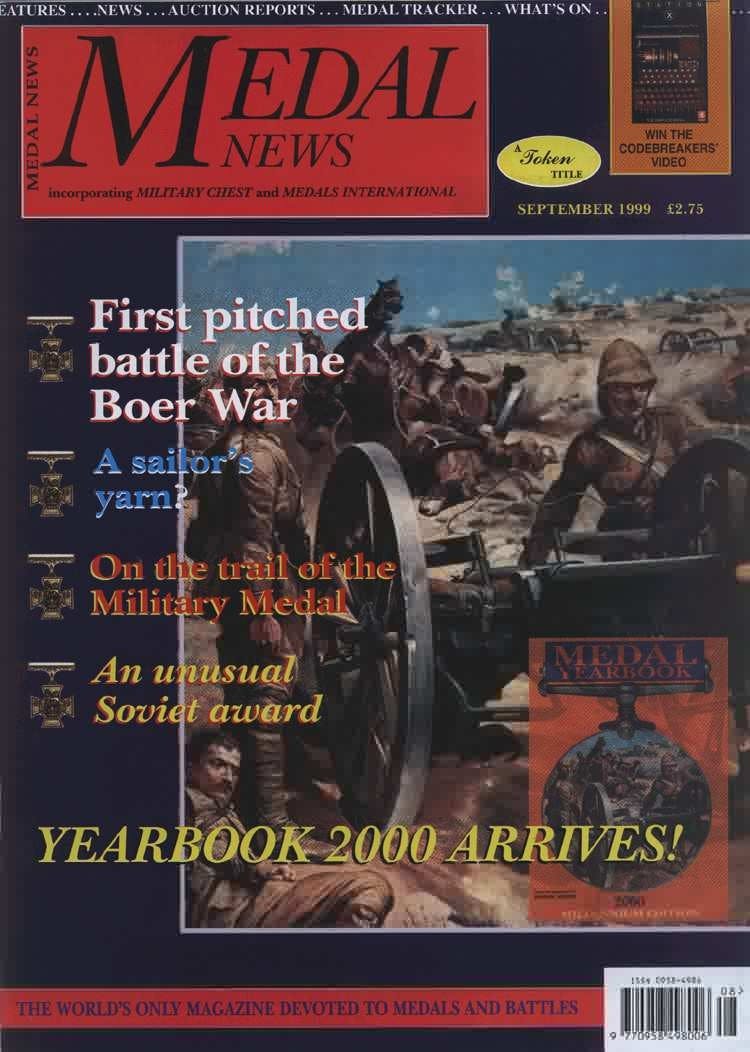THE BIGGER PICTURE
Volume 37, Number 8, September 1999
IT IS quite clear that medal collectors have wider interests than just medals. We know this at MEDAL NEWS because of your letters, and your responses to the survey we carried out last year. Medals are a part of a much larger corpus of military-related artifacts, which include weapons, badges, and uniforms, together with related items like post-cards, books and original documents, and more academic pursuits such as the study of tactics, strategy and the theory of warfare. All these phenomena fit into the overall pattern of military and political history which gives a context to military collecting and a significance to medals which goes far beyond the medals themselves. What would be the value (as opposed to the price) of a Crimean War medal without the context of the military activity (or inactivity) of the time, and its legacy of Alma, Inkerman, Balaklava and Sebastopol (so well commemorated in the street-names of Victorian Britain), Florence Nightingale, cardigans, raglan sleeves, and many -other ephemera? What would be the value of a Queen's South Africa medal without the context of "Black Week", Paardeberg, "Bobs" march on Pretoria, the sieges of Kimberley, Ladysmith and Mafeking, and "Breaker" Morant? What wofild be the value of a World War I trio without the context of Mons, the Somme and Passchendaele, Ypres, Wilfred Owen's "Pity of war", and Britten's War Requiem? However, there is also a social aspect to medals. For example, a soldier who was awarded the Distinguished Conduct Medal for an act of gallantry sometime during World War I, and who survived the war, was more than just a reflection of the citation relating to that tiny fraction of his life. He may have been a regular soldier from the pre-war period, wearing a variety of uniform items, carrying various weapons and sporting various insignia. Before he became a soldier he almost certainly had a job of some kind, and lived in a social community with particular characteristics. After the war he may have gone back to that community or emigrated to the colonies, carrying the experience of the war with him into the new society that evolved after the Treaty of Versailles. Whatever the details, for that soldier who was awarded the DCM, the act of winning it was a very small part of his life, no matter how proud he may have been to wear his medals later. For the collector who owns those medals now I believe it enhances his enjoyment of them to know more about the context in which the original recipient lived. Obviously, MEDAL NEWS is concerned mainly with medals, and most of the articles in the magazine reflect that fact. However, we also want to present readers with the opportunity to see the bigger picture. From time to time therefore we publish articles which deal with other aspects of the military context, and I hope readers will continue to find these informative and entertaining.
Order Back Issue
You can order this item as a back issue, simply click the button below to add it to your shopping basket.

